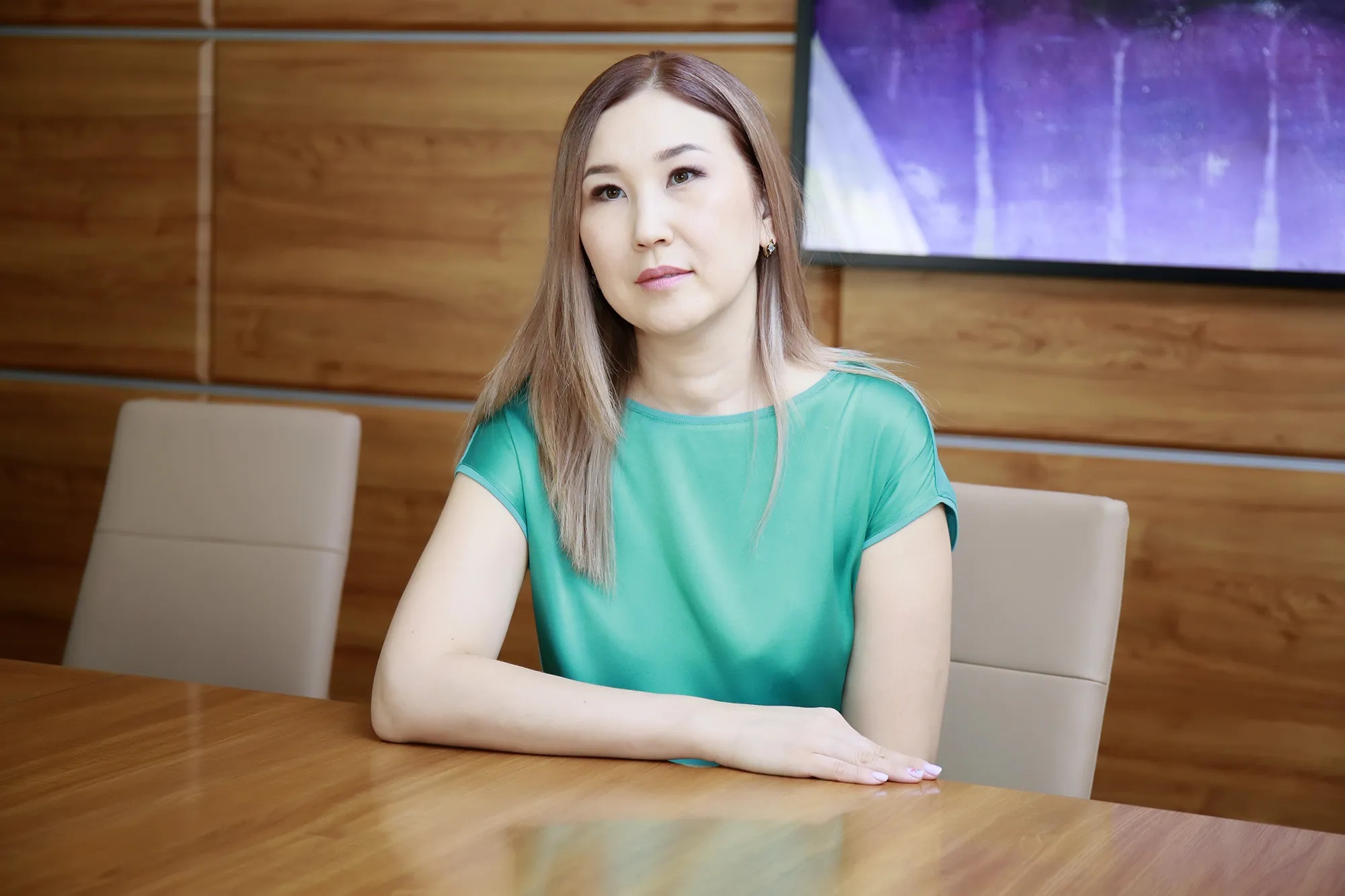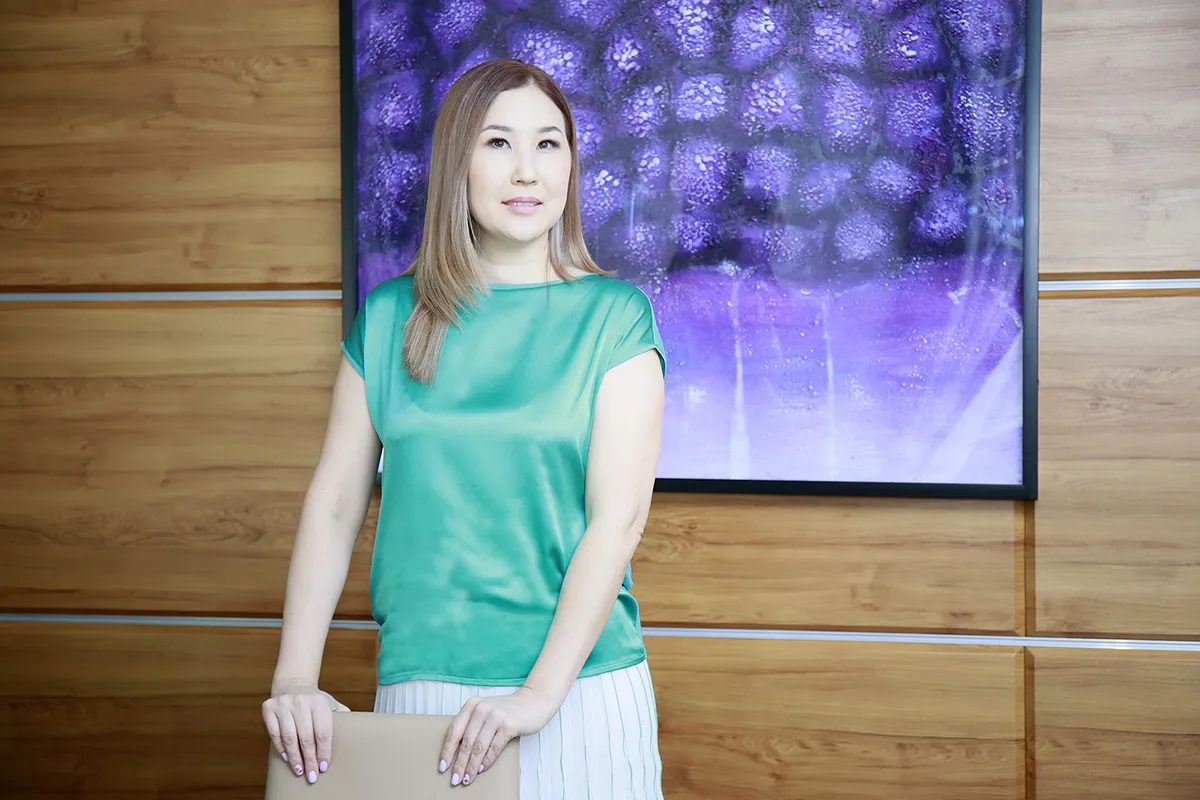A real transformation unfolded in Kazakhstan's logistics during the pandemic. Processes that were considered sluggish before the lockdowns suddenly became relevant and very useful in solving a number of issues. This, first of all, affected the export direction. We managed not only to maintain the indicators, but also to increase them. Nevertheless, there are still many problematic moments. About this told Aigul Dosayeva, Vice President for Logistics at Atasu Group to the correspondent of the business information center Kapital.kz.
- Aigul Gylymbekovna, what is Kazakhstan exporting today and where?
- Kazakhstan exports such goods as crude oil, refined copper and copper alloys, natural gas, ferroalloys, uranium ore, steel, iron ores, aluminum, cereals also occupy a large share in this list. Kazakhstan's products are exported to 117 countries of the world, the main ones among them are Russia, China, Italy, South Korea, the Netherlands, Turkey, India, Uzbekistan, France and Germany.
Such crops as barley, granulated bran, flax seeds, sunflower seeds, alfalfa are in very high demand. China also actively bought cathode copper, ore, and coke from Kazakhstan. Hides, fish waste, and confectionery products were shipped to China in a small but constant volume. Since the beginning of the year, we have sent more than 36 thousand tons of products in containers.
- It is known that currently in Kazakhstan logistics there is a trend of transition from the transportation of goods in wagons to the transportation of goods in containers. Tell us more about this.
- Yes, you are right, there have been changes. First of all, we are seeing a large-scale transition to transportation in containers. During containerization, the container is safely loaded, disinfected, it is sealed with seals and sent to the destination, to the recipient. In China, the laboratory checks it for viruses, then they open the container and unload the goods on the spot. In the opposite direction, the container is also disinfected and sent.

Containerization is very convenient in terms of cargo safety, the absence of manual reloading, mobility, and reducing transit time when forming container trains. The use of containers is a very popular service for Kazakhstani exporters of products to China, European countries and Southeast Asian countries. Cargo in containers can be easily transported by several modes of transport: by rail, by road and by sea, thus expanding the geography of cargo delivery, as well as reducing the time spent on transportation and transshipment of containers at border stations, within the framework of a single multimodal contract.
- What can contribute to the further growth of Kazakhstan's exports in containers?
- In order to achieve higher export indicators, it is necessary to provide the market with sufficient vehicles (containers, platforms for container transportation (fitting platforms), set an acceptable tariff, constantly and purposefully work on the development of logistics and infrastructure complexes

Regarding the increase in the number of rolling stock fleet. Here we are talking about increasing the platforms for the transportation of containers. The growing volumes of cargo transit in containers, as well as the increase in the number of regular container routes, have made the platforms leaders in demand on the freight wagon market. The acquisition of such platforms will ensure the renewal of the wagon fleet and reduce the deficit, which has been sharply observed recently.
But to do this, we need to solve another important issue - the exclusion of platforms for the transportation of containers from the List of imported goods for which VAT is paid by the offset method. In April 2020, the Ministry of National Economy of the country excluded fitting platforms from this list. The decision was made in order to support the manufacturer of platform wagons JSC "ZIKSTO". However, the small production capacity of this enterprise and its focus on the production of wagons for KTZ subsidiaries do not cover the needs of the domestic market of the Republic of Kazakhstan. Thus, the plant received an application for the production of 2000 platforms, respectively, the nearest production for other companies is possible only in 2022-2023. In my opinion, it is necessary to create favorable conditions and mechanisms for the interest of Kazakhstani companies in buying wagons not only in Kazakhstan, but also abroad. And to do this, you need to include the purchase of such platforms in the List of imported goods for which VAT is paid by the offset method.

To the question of the need for an affordable tariff. We urgently need the support of the state in matters of tariff regulation. The cost of one ton of products transported in a container should not be higher than the cost of one ton of products transported in a wagon today. According to MIID, we can containerize about 22 million tons of cargo for export, and thereby improve the delivery time and safety of cargo. As practice shows, the import of goods from China in 80% of cases arrives in containers, which means that there will be a surplus of wagons for the transportation of containers on the Chinese side, while the bulk of goods from Kazakhstan are transferred in wagons of a universal and specialized fleet. If we switch to at least 80% of the container cargo exchange in cooperation with China, then the progress along the road network of both countries will go much faster.
Let's go back to the infrastructure. Our company is ready to invest in expanding the network of terminals, especially on the border with China, to quickly reload containers and eliminate their accumulation due to the lack of appropriate capacities. At the moment, the terminals operating there cannot cope with the growing volumes. If we talk about the ways of solutions, the most optimal here may be the removal of barriers, which, unfortunately, are taking place today. First of all, we are talking about the difficulties with the admission of additional players who want to take part in the creation of the infrastructure (transshipment terminal).
- If we move away from the export direction, are there any other issues in general in logistics today that, in your opinion, require attention?
- Of course, there are. One of these issues is the organization of container trains in the transit direction. The speed of delivery by container trains is faster and cheaper than sending single containers. But the organization of container trains is not available to everyone today, due to a number of restrictions on the part of the national carrier, which announced a subsidiary of JSC KTZ Express as a single operator of container trains, directing it to buy the service from this company. As a result, the service of providing high-quality and timely services to the client is lost.

One of the components in the provision of transport forwarding services is notification of the location and status of the cargo, the national carrier company does not provide such a service in full, and most often the client remains unaware of where his goods are located. In addition, there is an increase in the cost of transportation. That is why I believe that the presence of other players in this market will have a positive impact on the quality of cargo delivery services as part of a container train. This will necessarily lead to an increase in transit indicators.
- How do you cope with the force majeure situation that has developed today on the railway?
- This year, due to the fact that a larger number of wagons are operated on the railway network than is provided for by technical standards, the number of congestion and other problems has increased. Universal and specialized rolling stock (covered grain carriers, gondola cars, universal platforms) is idle on the tracks, due to the rejection by the Chinese side of a sufficient number of wagons from our side.
For example, today there are about 2000 grain carriers in an abandoned state on the network, acceptance is proceeding at a pace - one train in three days, which means that the goods will be transferred for another three months. There are wagons that have not reached since January of this year. The railway, rolling stock operators, shippers and other participants in the transportation process suffer losses on a daily basis, and, accordingly, income from foreign exchange contracts does not arrive in time to the treasury of the republic. What are we doing together with the railway to change the current situation? We turn the wagons around, overload the grain cargo into containers and send it to China. We have purchased special equipment, scales and other equipment for fast reloading, preparation of the container for transportation. Negotiations are underway with Chinese partners in order for them to provide their containers for cargo transportation.

